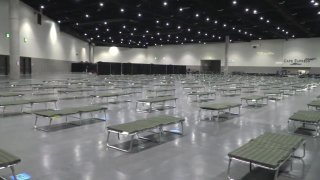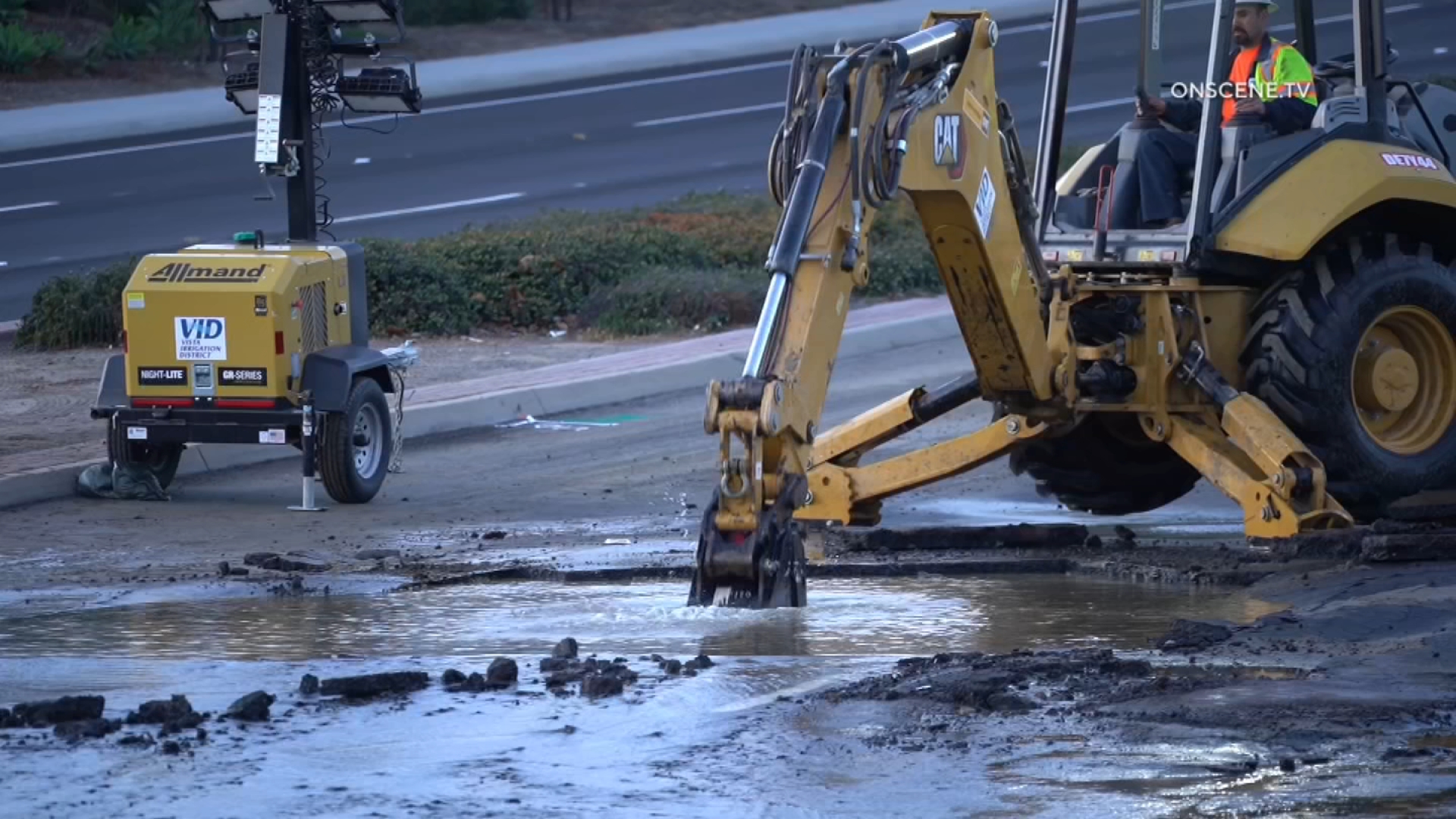
The transformation of San Diego’s downtown Convention Center from economic driver to mass shelter for homeless in the crosshairs of the coronavirus pandemic has reached phase two, Mayor Kevin Faulconer announced Tuesday.
The convention center is already home to hundreds of people who have been relocated from smaller shelters in an effort to keep them better protected from transmission of the virus. With the launch of the second phase over the weekend, outreach teams are now trying to lead unsheltered individuals still living on the streets to the convention center so they can benefit from city and county services.
Street teams are out with one goal in mind, “to encourage people to come inside,” Mayor Faulconer said.
“We have a place for you. A clean safe place where you can come in, get food, get meals, showers, get the resources you need to get back on your feet,” he added.
Between Friday and Monday, 68 unsheltered individuals were brought to the convention center, and 21 more had been taken in by around 4:30 p.m. Tuesday, according to Faulconer.
“folks we’ve been around for a long time, we’ve kind of kept our eye on them, kept the communication open with them over the last few weeks, and we’re going out and getting them,” Alpha Project President and CEO Bob McElroy said.
People coming into the convention center, sheltered or unsheltered, are screened for COVID-19 and other diseases upon entry and complete a medical questionnaire. They also benefit from consolidated service provider resources at the convention center, including specialists who can work with them to find permanent housing.
The first phase of Operation Shelter to home saw more than 800 homeless individuals sheltered at several facilities, including the Alpha Project, Veterans Village of San Diego, and Father Joe's Villages, move into the Convention Center in about a week’s time. Mayor Faulconer said the goal is to bring the total number of residents to 1,500.
It’ll come at a price, though. City officials estimated a 1,500-person head count will cost the city about $2.8 million per month. The city will be drawing from $7.1 million in state funds pooled among the city, the county, and the Regional Task Force for the Homeless, as well as $25 million shared by the city and county for behavioral health services.



